The 14 Best Diets for Weight Loss

IT CAN BE a daunting task to identify the most effective weight loss diet. The sheer volume of choices can make it challenging to narrow down the best approach for your individual goals. Amidst the array of options, finding a practical and sustainable weight loss solution remains a significant challenge for many.
As Rima Kleiner, R.D. puts it, there are many factors that influence weight loss, and those factors are individualized based on a person's body composition, genetics, metabolism and more. “Just because a certain diet worked for a friend or even family member does not mean it will work the same for you,” she says. Some other factors that impact weight loss efforts include muscle mass, level of insulin resistance, and individual nutrigenomics—how your body responds to foods, nutrients and eating patterns.
The good news? Losing weight isn’t rocket science. “In simple terms, weight loss requires a calorie deficit: you need to burn more calories than you consume to shed pounds,” said Lisa Moskovitz, R.D., and author of The Core 3 Healthy Eating Plan. Of course, it’s not always easy—but with some hard work and research-backed eating routines, you can shed weight safely and effectively.
Ahead, our experts guide us through the process and break down some of the best weight loss diets.
How to Pick a Diet for Weight Loss
First things first: don’t pick something that's strict to the point of sabotaging your efforts long-term and potentially hurting your health.
As Moskovitz says, being overly restrictive with your diet to achieve noticeable or quicker weight loss results can backfire. “Eating too little can increase appetite or cravings, slow down metabolism further, result in harmful nutritional deficiencies and interfere with hormonal harmony: all of which can significantly increase the chance of rebound weight gain.”
While there’s a dizzying array of weight loss strategies to consider, Moskovitz emphasized that there is no ideal diet—“there's only what works best for you.” That’s why it's crucial to make sure whatever approach you decide on is sustainable, fits into your lifestyle, considers your unique food preferences or medical needs, and doesn't consume your entire identity, she says. “The way you eat to lose weight, is the way you have to eat to maintain your weight: remember that before you commit to a plan.”
Kleiner says to focus on eating patterns that include real foods, ideally with adequate protein, fiber-rich carbohydrates and heart-healthy fats to meet your nutritional needs. “To find an eating pattern that helps you meet all of your wellness goals, I recommend working with a registered dietitian."
How Long Should You Try a Diet Before Changing It?
Moskovitz stated that it can take a few weeks to notice results on a new diet.
“In fact, most people feel the changes before they noticeably see them in the mirror or the scale,” she says. “However, if after about a month you feel like you're not getting anywhere, or worse it's too hard to sustain, it's time to reevaluate the diet.”
A good rule of thumb is that a healthy eating pattern should have you feeling better within a few days or at least a few weeks, Kleiner says. While weight loss isn’t going to happen overnight, if you're constantly feeling low energy or hungry, the diet you're following is likely not working, regardless of whether you're losing weight or not.
The Mediterranean Diet
The Mediterranean way of eating has been shown consistently to help support weight loss, brain health, heart health, and more, says Kleiner.
“The Mediterranean diet encompasses foods and eating patterns from Greece, Italy, Spain, Croatia, Israel and Turkey,” said Kleiner. The diet heavily focuses on fiber-rich carbohydrates like vegetables, fruits, beans, and whole grains; protein primarily from seafood and fish, and heart-healthy unsaturated fats from olive oil, nuts, and seeds. “One reason why the Mediterranean diet is so popular and heavily touted is because it is not restrictive, it's sustainable, includes delicious foods.”
This popular approach can help you lose weight, even though it’s not formulated specifically for weight loss, says Moskovitz. “It's balanced, heart-healthy, plant-based and easy to adopt.”
Check out our beginner’s guide to the Mediterranean Diet here.
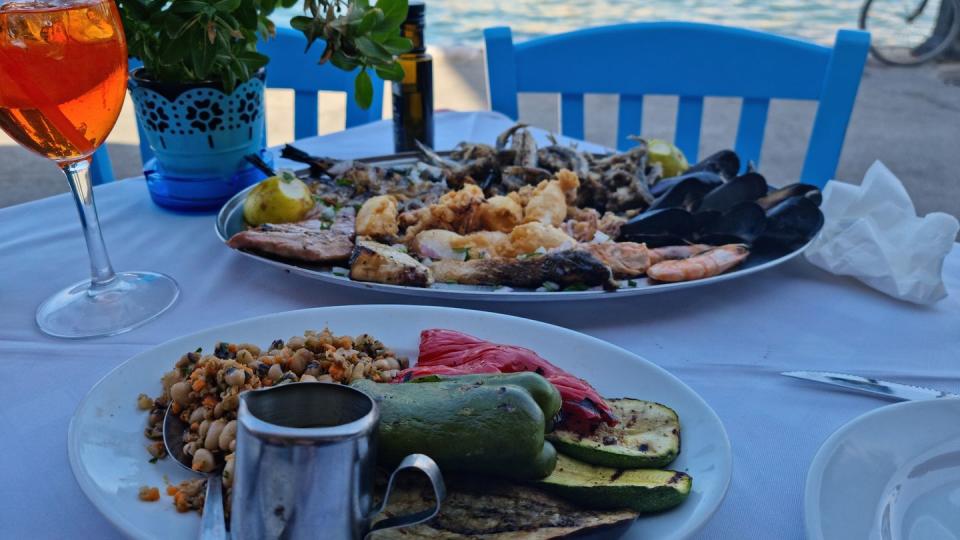
High-Fiber Diet
“High-fiber diets are also incredibly effective at leading to long-lasting weight loss,” says Moskovitz. Fiber is a zero-calorie carbohydrate that keeps you full, slows down digestion, and balances blood sugar.
“As a result you can expect to eat less without feeling hungry,” she said. Shoot for at least 25–30 grams of fiber to achieve desired results. Be careful if you’re getting more than that, though—too much fiber can cause some nasty digestive problems.

High Fiber, High Protein Diet
The best thing to add to a high fiber diet? Protein.
For people who have insulin resistance or regularly elevated blood sugar levels, weight loss can be challenging. Focusing on protein-rich and fiber-rich meals can help tip the scales towards weight loss, says Kleiner.
“Eating protein-rich foods—like seafood and fish, poultry, eggs and yogurt—helps increase satiety and keep you feeling fuller longer,” she says. “Fiber-rich foods—such as vegetables, fruits, beans, legumes and whole grains—are broken down more slowly than refined carbohydrates and helps to prevent blood sugar spikes and, ultimately, crashes.”
Meanwhile, foods that are high in added sugars and refined simple carbohydrates like sodas, baked goods, and candy are limited on this nutrition plan, “which also helps to keep blood sugar levels stable which can help with weight loss,” says Kleiner.
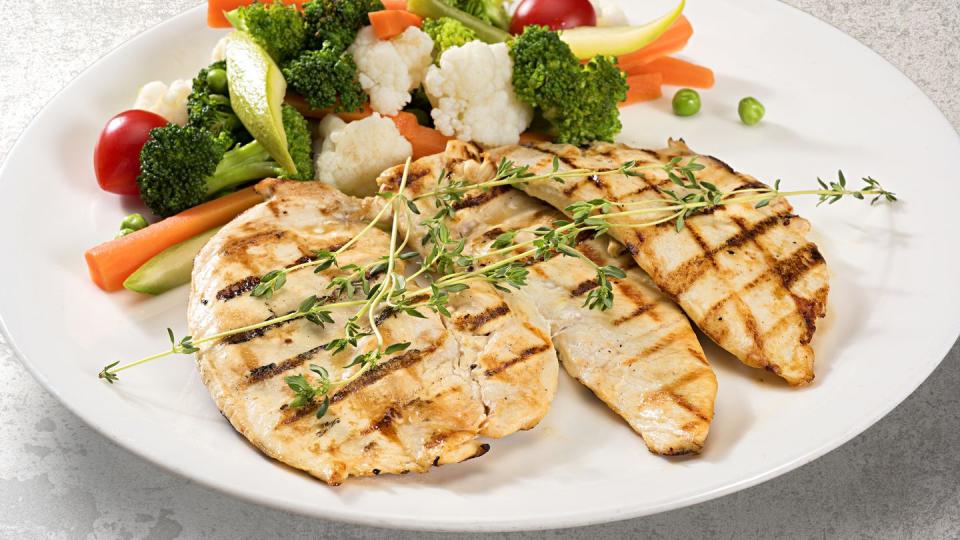
Calorie Counting
Moskovitz says that calorie counting is another approach that can be surprisingly effective at helping you shed pounds. “It might not seem like it, but calorie-counting can allow for freedom of food choices within the confines of a certain predetermined caloric range or target zone,” she says.
If you opt for this, though, Moskovitz highly recommends working with a registered dietitian who can map out your specific and unique calorie and macronutrient needs.

Macro Counting
The above can be true for macro-counting too—especially if you’re trying to prioritize protein intake. Macro-counting involves creating a target range for carbohydrates, fats, and protein. Again, speak with a registered dietitian to find out what your ranges should be based on your specific needs.
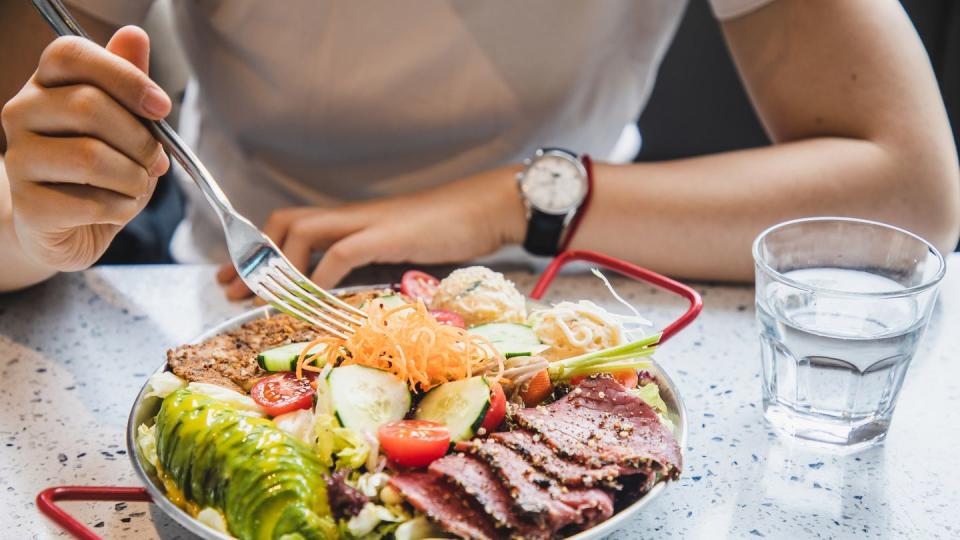
Noom
The Noom app offers an alternative approach to dieting that addresses and tackles common psychological barriers to weight loss such as emotional eating, mindless eating, and other common overeating causes.
“One of the reasons why Noom can be beneficial is because sustainable weight loss requires permanent behavioral changes,” Kleiner says. “Anyone can follow a diet and lose weight, but those who are successful at keeping it off understand the necessary shift in overall mentality and psychology when it comes to eating and exercise.”

Mindful Eating
This isn’t technically a weight-loss ‘diet,’ but it’s a beneficial lifestyle approach worth highlighting.
“Although the concept of mindful eating is not a weight loss diet, mindless eating is the most common cause of over-eating and weight gain. If you're constantly eating until every last bite of food is gone from your plate, then it's a sign the meal is not totally mindful,” said Moskovitz. “Mindless eating occurs when we are detached and distracted while eating.
That said, practicing being present during meal/snack times by engaging senses and checking in with hunger and fullness cues can drastically help you eat less, or the right amount for your body. That means to eat your food while sitting down at your dining table, not in front of your TV or computer. Focus on how your food makes you feel, noticing (and stopping) when you’re full.

Vegetarian Diet
Not only do fruits and veggies provide hearty doses of antioxidants, minerals, and vitamins, but the fiber in produce helps you keep fuller for longer, potentially staving off hunger pangs and ensuing overeating.
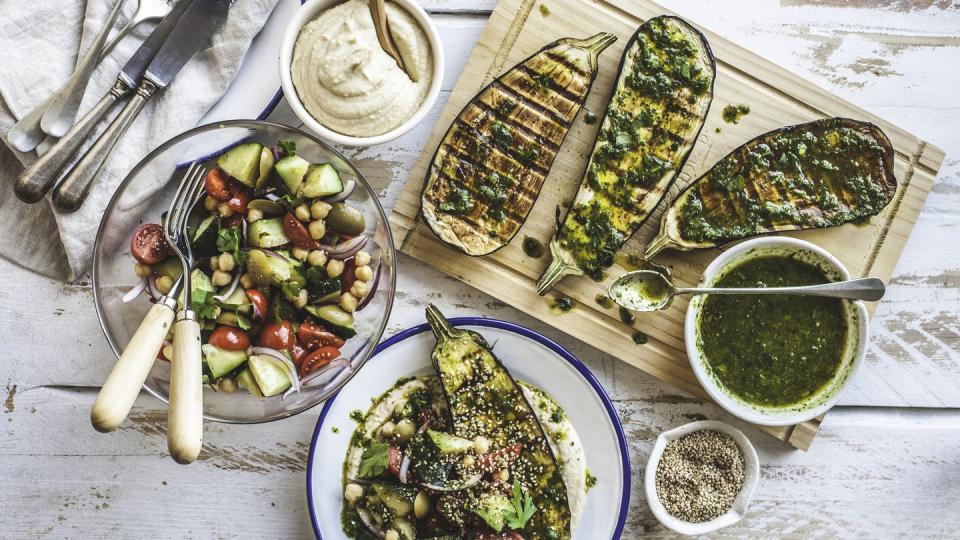
WeightWatchers
It’s an oldie but a goodie for a reason. This diet hit was the top diet for weight loss by the U.S. News and World Report for 2023. It’s focused on behavioral changes and providing social support, aiding its success over the years.

DASH Diet
The Dietary Approach to Stop Hypertension, better known as the DASH diet, was created by the National Heart, Lung, and Blood Institute, designed to better high blood pressure in patients. It follows a similar criteria to the Mediterranean diet, but with more specific recommended amounts.

Mayo Clinic Diet
Last year, the Mayo Clinic released a formal 12-week eating program that emphasizes fruits, vegetables, and whole grains. It emphasizes foods with low caloric density—meaning foods that you can eat large volumes for a small amount of calories.
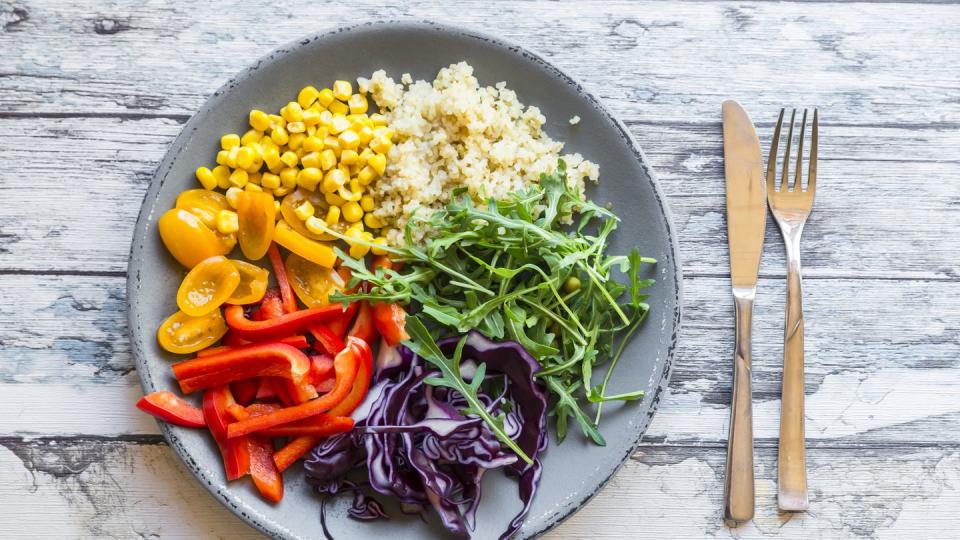
TLC Diet
The Therapeutic Lifestyles Diet, better known as the TLC diet, was designed by the National Institutes of Health’s National Cholesterol Education Program, in an effort to cut cholesterol and promote heart health. The diet limits foods with saturated fat content, like red meat and high-fat dairy.
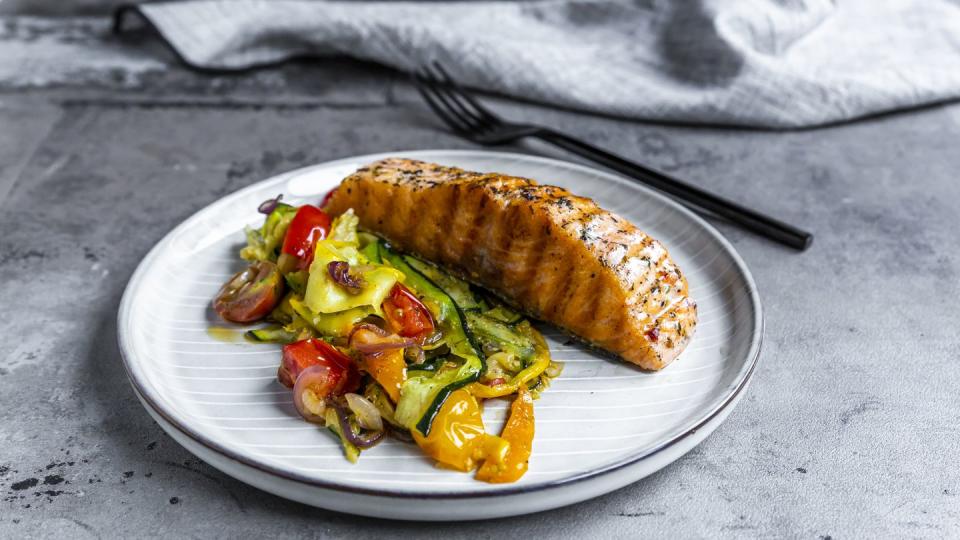
Flexitarian Diet
Not ready to fully cut off from meat? The flexitarian diet provides the perfect middle ground.
The term flexitarian was coined by author Dawn Jackson Blatner in her 2009 book, The Flexitarian Diet: The Mostly Vegetarian Way to Lose Weight, Be Healthier, Prevent Disease and Add Years to Your Life. The diet is focused on mainly fruits and vegetables, while still allowing a little leeway to enjoy a steak on a special occasion.
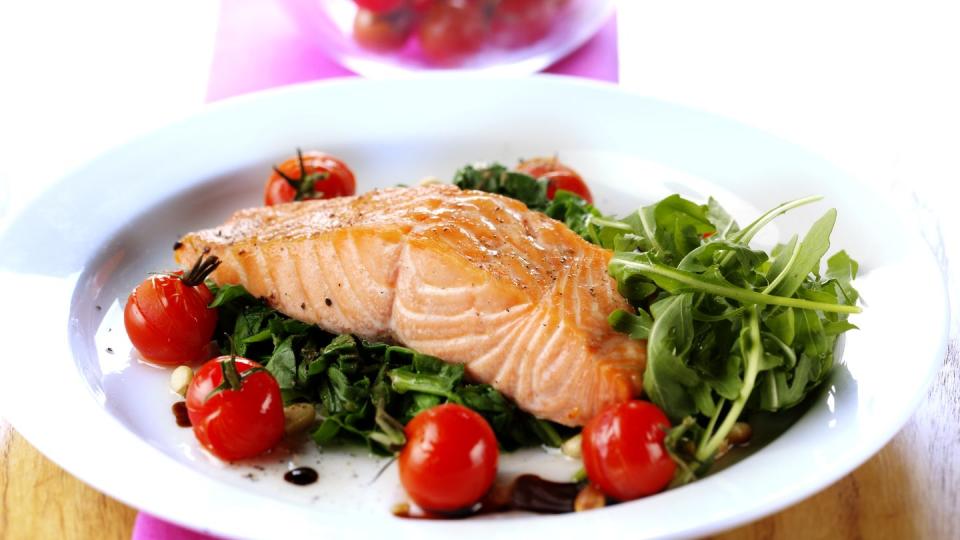
Ornish Diet
The Ornish diet was created by a doctor and medical professor at the University of California San Fransisco in the late 70s, designed to reverse heart disease.
The diet focuses on fruits, vegetables, grains, and legumes. It eliminates meat, but allows for a few low-fat dairy products and eggs.
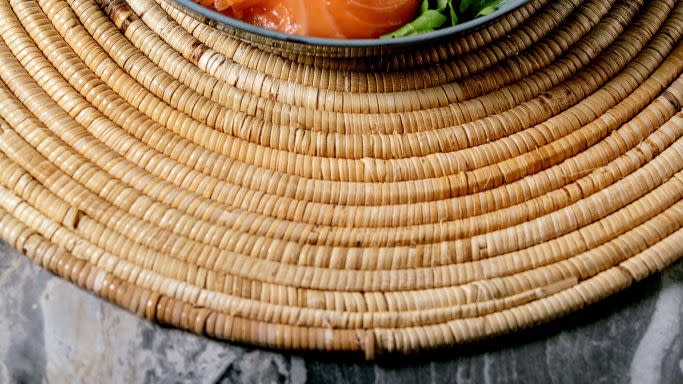
You Might Also Like

